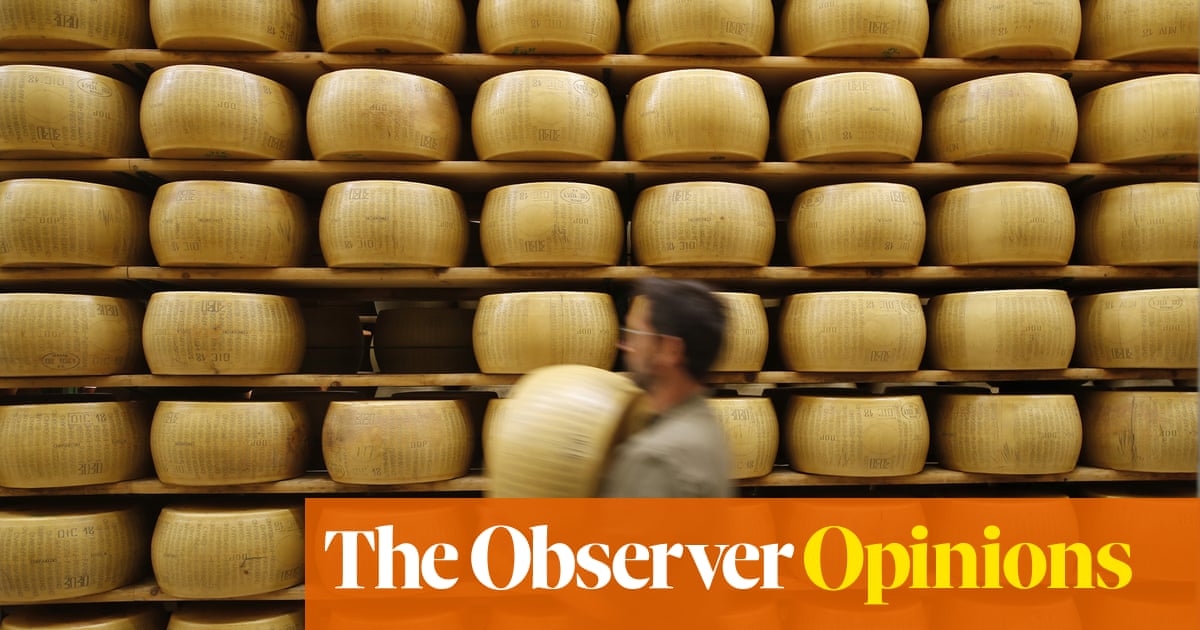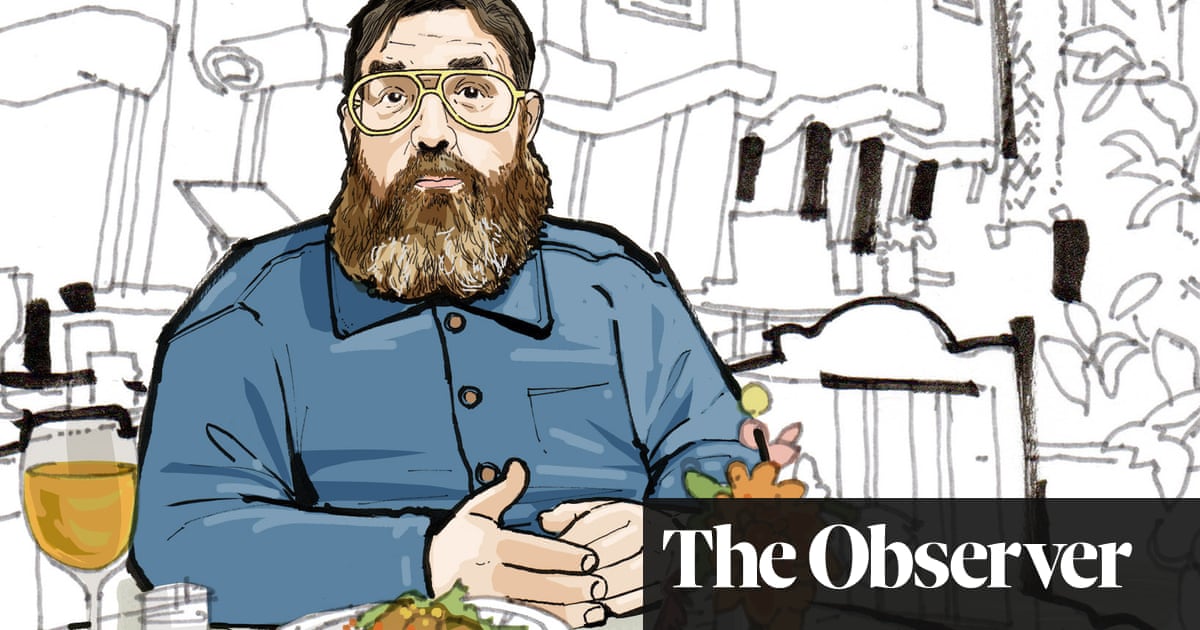
Bel Powley is not a good liar. “I have a bad blush reflex,” the actor says, and her hands instinctively shoot to her face. “I go really red.” She’s been in the entertainment industry more than half her lifetime but, off stage, pretending is a different story. “I could tell you I liked your outfit if I didn’t,” she says, her easy laughter assuring me she’s not directing the comment anywhere specific. “But a big, big lie?” She shakes her head emphatically, every move she makes open and expressive. “To someone I loved, I’d quickly give myself away.”
Love and deceit form the marrow of the latest project for the 32-year-old actor, Tom Stoppard’s 1982 play The Real Thing. The play-within-a-play structure sees her character, Annie, an actor, grapple with her relationship with playwright Henry, her sparring partner, played by Mare of Easttown’s James McArdle. “Our chemistry feels really good,” she nods.
As their affair flounders and Annie gets entangled with an imprisoned soldier, Stoppard’s story offers a tricksy, slippery examination of what love really means. “Usually a love story is two people who meet and by the end, they’re together,” she says, having folded herself into a chair in an office at the back of Battersea Arts Centre, where the cast are rehearsing ahead of their performance at the Old Vic. “What I love is that he’s exploring the corners of a relationship we don’t often see: the end of an affair, the breakdown of a relationship, the start of a new chapter for a couple who don’t know if it’s the real thing but they’re giving it a go anyway. That’s more what real life is like, rather than the soppy version of a romance,” she pauses, “but I do like that version too.”
Powley has always gravitated towards love stories, in what she makes as well as what she watches. “Constellations by Nick Payne is my favourite play in the entire world,” she gushes. “Tears come to my eyes thinking about it. And I love Drake Doremus’s early stuff, like, oh my God, what’s it called … ” she grabs her phone and remembers halfway through Googling, eyebrows shooting up her face … “Like Crazy!”
Heated, tender relationships have been central in the roles she takes too, ever since her breakout performance in Marielle Heller’s The Diary of a Teenage Girl, all the way up to the recent adaptation of Dolly Alderton’s memoir, Everything I Know About Love. Powley’s easy chemistry and effusive energy make her characters hopeful; you always find you’re rooting for them. “Love and relationships are my way in,” she says, thoughtfully. “I don’t know if that’s the centre of everyone’s world or if that’s just the way I approach characters. Relationships and love make the world go round, don’t they?”
Celebrity is silly fun – they’re all just people with anxieties, impostor syndrome and the school run
Peeling back the confusing, hormone-laden layers of teenage life and lust, The Diary of a Teenage Girl was the first time Powley remembers doing work that felt truly public. As one of the first movies to show the sticky, awkward reality of being a teenage girl, she felt a huge sense of responsibility. “Everyone was like: ‘Woah, teenage girls exist?’” She feigns shock. “‘They like sex?’” The movie started a trend of Powley’s roles revolving round love and sex, always playing characters younger than she actually was. Annie, her character in The Real Thing, who is learning about her own attitudes towards desire and “what works for her”, is one of the few roles where she is playing her age. “We’re both newly married women in our 30s,” Powley says, which gives her a sense of “making these discoveries alongside her”.
Last year, Powley married fellow actor Douglas Booth. The pair had the rare experience of performing together; they met filming Haifaa al-Mansour’s thriller Mary Shelley. “It was so fun, so exciting,” she beams, remembering starting dating on set. Eight years on, their life has more than a regular couple’s dose of glamour, but Powley waves away any suggestion of taking the world of celebrity too seriously. “Oh,” she says, gently, “it’s silly fun. They’re all just people with the school run and anxieties and impostor syndrome.” The latter, she says, is something she still experiences on every job. “You might have a really nice dress on and a glass of champagne in your hand, but at the end of the day you’re all just human beings.”
The one person she has been most anxious to meet in her career so far was Jennifer Aniston, her co-star and producer on Apple TV+’s The Morning Show. “I’ve seen every episode of Friends 10,000 times,” she says. “She lived up to my expectations tenfold.” In the show, Powley plays assistant Claire to Reese Witherspoon’s news anchor Bradley; it was her first big American TV show and she was uncharacteristically nervous. “For the first three months I didn’t speak,” she laughs.
Powley has been acting professionally since she was at school. She covers her face when I bring up MI High, the CBBC show in which she played a teen spy who raced out of lessons to save the world. “It forces you to grow up,” she says, “because even when your co-stars are kids, you’re working with grownups.” But independence had already come early. “My parents went through a horrible divorce when I was a teenager.” Her tone is matter-of-fact. “My way of dealing with that was I extracted myself a bit from family life. So I was my own person from pretty young.”
She remembers waving her parents goodbye when she went to live in New York, aged 18, to perform in Stoppard’s Arcadia on Broadway, a formative experience. “You could see the Statue of Liberty from the window of my apartment.” She holds up her thumb and forefinger and squints through the gap. “It was a millimetre big, but I was like: ‘I’ve made it.’” On weekends, she’d print out maps of the city and wander round art galleries, not knowing anyone but enjoying the freedom. Although Powley describes acting as something that “just happened”, it was about this time that the job became a certainty for her. “All my friends were going off to university and I moved to New York,” she muses. She deferred her place to study history and politics at University College London once, and then again. After four years, she gave up the place, deciding her future looked a little different from what she’d expected.
Looking back at her career so far, Powley can easily pinpoint the skins of characters she can discard, and the ones she has rolled up and carried with her. One of the most defining came recently with A Small Light, a miniseries about Miep Gies, the extraordinary woman who helped hide Anne Frank’s family. “I’m Jewish, so it’s an important story to me,” Powley says, “but I also think, why has no one ever made anything about this incredible woman before?” She has struggled with war stories in the past because of their propensity to centre on men, and be told in a way that feels “repetitive and sepia-toned”. But she was attracted to the female perspective in A Small Light, the way its use of modern-day language helped it resonate with our present day. “There’s a lot more to learn about than just men on the frontlines,” she says.
She raises her eyebrows and we segue naturally into Masters of the Air, the Apple TV+ giant about men on the frontlines. “It was a lot of fun, but I was filming Everything I Know About Love at the same time, and then I’d get driven to these huge sets with so many men ... hundreds and hundreds and hundreds of men.” She chuckles, the eye-roll only mostly a joke. “It was impressive. They turned a yoghurt factory into a studio with a plane in the sky surrounded by cameras and screens.” She huffs, playfully. “I was so jealous. I wanted to fly it.”
Now she’s returning to Stoppard with The Real Thing, a play that has reminded her how hard fought love can be. “For me,” Powley says, “the message is that you never really know if it’s the real thing.” She tucks her knee under her chin and thinks about it. “Obviously, I’m madly in love with my husband and I’m very happy. But I think what Tom is trying to say with the play is: yes, love exists, but relationships and marriage have to be worked on. It’s something you have to tend to, and pay attention to. The real thing doesn’t just spring out of nowhere.”












